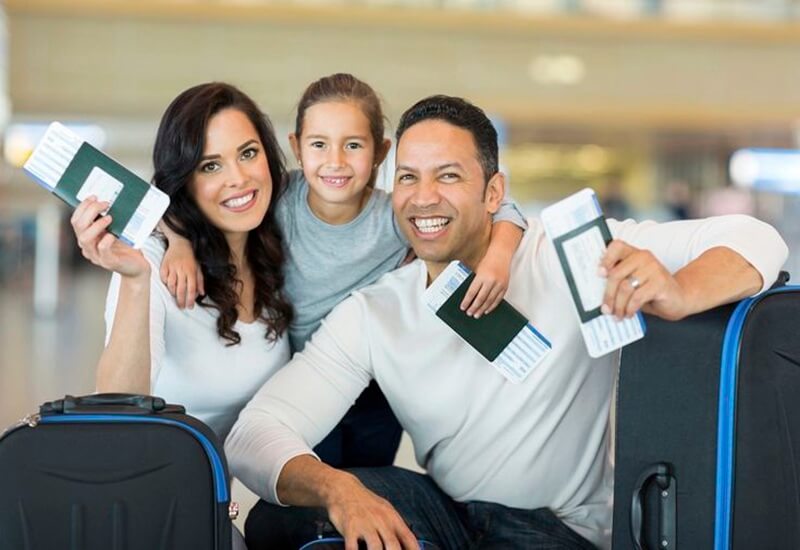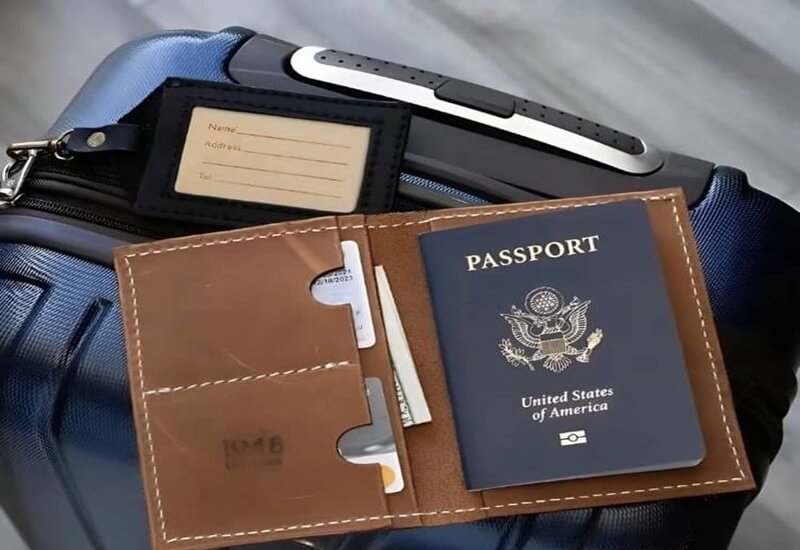Family-Based Petitions Can Help You Reunite Your Family
The separation of loved ones is a profoundly emotional consequence of immigration, often resulting in thousands of miles of space between them. Family-based petitions offer a lifeline, enabling relatives to reconnect and establish lives in the United States. This process provides hope and a clear path toward building a future together.
For families navigating this situation, clarity and guidance are paramount. In this article, you’ll learn about the types of petitions, eligibility criteria, and the steps involved in the process. Delve into the challenges and discover how professional support can streamline the journey toward reunification.

What Is Family-Based Immigration?
Family-based immigration allows U.S. citizens and lawful permanent residents (LPRs) to sponsor close relatives for immigration benefits. This system prioritizes maintaining connections, but eligibility and processing times depend on the relationship between the sponsor and the beneficiary.
There are two main categories for family-based petitions. Immediate relatives of U.S. citizens include spouses, unmarried children under 21, and parents. They benefit from faster processing since these visas are not subject to annual caps.
For relationships that do not fall under the Immediate Relatives category, Family Preference provides a pathway to reunification. However, these categories are subject to annual numerical limits, often resulting in longer processing times. These include:
- F1: Unmarried adult children of U.S. citizens.
- F2A: Spouses and minor children of LPRs.
- F2B: Unmarried adult children of LPRs.
- F3: Married children of U.S. citizens.
- F4: Siblings of U.S. citizens if the sponsor is at least 21.
The family-based petition system presents a valuable opportunity for U.S. citizens and lawful permanent residents to bring their loved ones closer. By providing legal pathways, it reflects the nation’s commitment to reunification. While the process may require careful planning and patience, it offers a clear direction for those looking to build a life in the U.S. together.
Why Is This Approach Valuable For Reconnecting Loved Ones?
Family-based petitions offer both sponsors and beneficiaries emotional, practical, and long-term benefits. These petitions prioritize the value of reuniting loved ones while fostering stability and opportunities for all involved. Below are some key benefits families gain from completing the process.
Strengthening Emotional Bonds
Reuniting with loved ones strengthens relationships and emotionally supports all family members. Being physically present allows them to share milestones, celebrate traditions, and face challenges together. This connection fosters a sense of belonging and improves mental and emotional well-being for those involved.
Building Economic Stability
When families are together, they can pool resources, share responsibilities, and support one another in achieving financial goals. Beneficiaries can access job opportunities, while sponsors may benefit from additional household income. This shared economic stability creates a foundation for long-term success.
Accessing Education & Healthcare
Family-based petitions allow beneficiaries to pursue education and healthcare in the U.S. Children can attend schools that prepare them for future opportunities, and adults can access better career prospects. Access to quality healthcare ensures the well-being of family members and helps address medical needs effectively.
Creating A Secure Future
Obtaining lawful permanent resident status through family-based petitions provides long-term security for beneficiaries. It allows them to build a stable life in the U.S., with the potential for eventual citizenship. This sense of permanence ensures households can grow together without fear of separation due to immigration issues.
The family petition process reunites loved ones and provides a foundation for building a secure and fulfilling future together. To enjoy these benefits, you must understand the steps involved in the application process. Knowing what to expect ensures you can move forward confidently toward reunification.
What Is The Process For Filing A Petition?
Reuniting with loved ones is one of the most meaningful goals for anyone separated by borders. The family petition process offers a pathway to accomplish this, but the journey can be difficult without guidance. Here are the steps you’ll encounter:
- Filing Form I-130: Sponsors start by submitting Form I-130 to USCIS. This document establishes the relationship between them and the beneficiary with evidence such as birth or marriage certificates.
- Submitting Supporting Documents: Sponsors provide financial documents, including proof of income and Form I-864 or Affidavit of Support, to show they can financially support the beneficiary.
- Paying Filing Fees: USCIS requires payment of a filing fee for Form I-130. Ensuring timely payment keeps the process moving forward.
- Medical Examination: Beneficiaries must complete a medical exam with an authorized physician to confirm they meet health-related immigration requirements.
- Biometrics Appointment: USCIS schedules a biometrics appointment with the beneficiary to collect fingerprints, photos, and signatures for background checks.
- Interview: Beneficiaries must attend an in-person interview, during which officials review documents and verify eligibility.
Applicants outside the United States typically undergo consular processing through the U.S. embassy or consulate in their home country. In contrast, those already in the country may apply for adjustment of status (AOS), allowing them to complete this process without leaving. While both paths aim to achieve the same result, location shapes specific requirements.
The petition process requires precise documentation, timely submissions, and strict adherence to immigration laws. Errors or oversights often lead to delays or denials, creating unnecessary stress. A skilled attorney guides you through the process, tackling challenges head-on and assuring you that every detail is in place.
How Does Lincoln-Goldfinch Law Help Reunite Families?
Family reunification is at the heart of what we do at Lincoln-Goldfinch Law. The immigration process can feel like a maze, but you don’t have to face it alone. Our team is dedicated to guiding you through each step, offering clear explanations and practical support.
Every family has a unique situation, so we provide personalized assistance to match your needs. From gathering necessary documents to preparing for interviews, our team works closely with you to ensure everything is in order. If any challenges arise along the way, we address them quickly and thoroughly, always focusing on your goal of reunification.
You gain a support group committed to strengthening your petition by partnering with us. We understand how much this journey means to you and dedicate ourselves to supporting you from start to finish. Your family’s future matters to us, and we are proud to stand by your side as you work to bring your loved ones together.
Family-based petitions allow U.S. citizens and lawful permanent residents to sponsor loved ones, including spouses, parents, and children, for immigration benefits. The process begins with filing Form I-130, proving the relationship, and providing necessary documents.
While challenges like documentation errors or delays may occur, thorough preparation and legal guidance can help overcome these issues. Lincoln-Goldfinch Law assists families by navigating requirements, addressing obstacles, and ensuring the process stays on track.
Contact A U.S. Immigration Attorney Today!
Categories
How To Find Us
What Our Clients Say
“This Lawfirm is great, very professional and helpful. I love that they are always in communication and always available for when you have questions . 100% recommended by me and my family. Thank you Lincoln-Goldfinch Law – Abogados de Inmigración”





